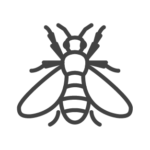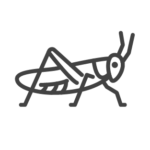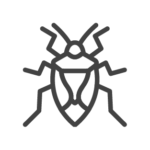Our Current Offers
Previous slide
Next slide
Leave your information below and we will give you a call back.
After-hours inquiries will be returned the next business day.
Carpenter bees are a huge concern for homeowners across Middle Tennessee and Southern Kentucky because they are wood-destroying insects. There are two main classifications, small ones, and large ones. They can be yellow, black, greenish, metallic blue, or purple in color and measure between 8 and 25mm in length. They have somewhat hairy legs and thoraxes. Carpenter bees have 6 legs, antennae, and wings. They do not live in colonies, undergo complete metamorphosis, adults hibernate and their food source consists of mainly nectar. Only the females have stingers, they are also the ones responsible for hollowing out a plant stem to build the nest.

Large carpenter bees burrow holes into dry untreated and weathered wood structures. Surprisingly they do not consume the wood; they live off nectar and pollen. Carpenter bees destroy windows, roofs, railings, decks, fences, poles, and furniture. The females will choose existing nests and tunnels to preserve the energy it takes to build a new system. They are also responsible for chewing an opening into a surface that leads to the tunnel system and eventually to the nest. The entrance is characterized by looking like a half-inch drill hole. Nests are built in linear partitions in which the female brings a nutritional clump of pollen and nectar that she uses to shut the cell. After laying eggs, the female dies and the hatched larvae feed off the clump to develop into the pupal stage. Within 7 weeks an egg matures into the adult stage. Development depends on environmental factors. Usually, adults emerge at the beginning of spring to mate and feed before returning to their breeding cell to overwinter. In colder states, there is only one generation annually but in southern states such as Tennessee and Kentucky, several generations are produced annually.
Small carpenter bees bore holes into stems and twigs to build their breeding sites. Adult females use excavated wood to overwinter until the springtime when nest-building activities are similar to large carpenter bees. One significant difference is the fact that small carpenter bees do not require males to reproduce. Because of their solitary nature, carpenter bees reproduce only between 6 and 10 offspring within a generation. An infestation can easily be determined through the presence of the males flying around to protect the territory. They do, however, not sting. Additionally, entrance holes, sawdust, pollen, and bee excrement are signs of carpenter bee presence.
Our Customer Care team is always happy to provide a complimentary quote or arrange a complimentary inspection. Reach out anytime!
Lookout Pest Control, formerly Ace Exterminating, based in Nashville, Tennessee, is a pest control and crawl space encapsulation company. Since 1988, Lookout, formerly Ace, has been providing the highest quality pest solutions in Middle Tennessee and Southern Kentucky. Whether you are looking for monthly pest control, have an issue with rodents, or are wanting to waterproof and protect your crawl space, we can help.
When you want to get rid of bugs, rats, snakes, skunks, ants, or termites, you want Lookout Pest Control, formerly Ace Exterminating.
While males appear very aggressive, they do not sting; only females possess the ability but rarely use it. Although they are a nuisance to homeowners and can result in significant and costly damages, carpenter bees are ecologically important because they act as pollinators. Carpenter bees attract woodpeckers which chip more and larger holes into the wood. The trained pest management professional can identify the species, locate the nest, and create a treatment plan to successfully control carpenter bees and prevent future costly damages to the structure.

Our expert exterminators will prevent, protect, and permanently eliminate pests while treating your home and family like we would our own.















Serving Middle Tennessee and Southern Kentucky
Home » Carpenter Bee Control